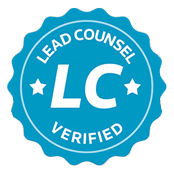Suffering a traumatic brain injury (TBI) is a life-altering event. In addition to physical disabilities, TBI survivors often face significant emotional and psychological challenges during their recovery process. Changes in behavior, mood, personality, and cognition are common after moderate to severe brain injuries. These “invisible” deficits can be some of the most difficult for survivors and families to manage after TBI.
Understanding the emotional and behavioral effects of TBI is critical. Seeking proper professional support and implementing lifestyle changes can help individuals regain stability and quality of life. This article explores some of the common emotional and behavioral changes after TBI, their impacts, and strategies for moving forward. With time, targeted treatment, and support, many survivors see improvement in these domains.
Depression
Depression is one of the most common emotional problems experienced after TBI. Estimates suggest that depression affects 30-50% of individuals who have suffered a TBI. Depression after TBI is linked to the damage caused to brain areas that regulate mood. Additional factors such as coping with post-TBI disabilities and limitations can also contribute to depression.
Symptoms of depression following TBI include:
- Persistent sad, anxious or “empty” mood
- Loss of interest in previously enjoyed activities
- Sleep disturbances
- Fatigue and loss of energy
- Feelings of worthlessness and guilt
- Difficulty concentrating and making decisions
- Thoughts of death or suicide
If you notice these persistent emotional changes after your injury, it is important to seek professional help. Depression is very treatable with medications and psychotherapy tailored for a TBI population. Getting appropriate treatment leads to better overall recovery.
Anxiety
Many people experience anxiety after a TBI. This may be generalized anxiety, social anxiety, panic attacks or phobias. Anxiety frequently accompanies depression. Factors contributing to anxiety include:
- Brain areas linked to anxiety being damaged in the injury
- Stress of coping with post-TBI disabilities
- Loss of independence and uncertainty about the future
- Financial and work-related stress
- Fatigue and sleep problems
Common symptoms of anxiety after TBI include:
- Excessive worry and fear
- Restlessness and feeling on edge
- Muscle tension
- Panic attacks
- Avoidance of situations
- Difficulty concentrating from intrusive thoughts
As with depression, seek professional help for persistent anxiety. Counseling, medications, relaxation techniques and gradual exposure therapy can help in managing anxiety.
Agitation and Anger
Many TBI survivors experience issues with anger and agitation. This can include:
- Irritability over minor frustrations
- Shortened fuse and frequent outbursts
- Increased agitation in crowded, noisy or stimulating environments
- Hostile behavior and verbal aggression
Brain injuries, especially frontal lobe damage, can impair emotional control and regulation. Fatigue, chronic pain, financial stress, and feeling overwhelmed with life changes can worsen anger and agitation.
If anger control is becoming problematic, seek counseling on anger management skills. Safe environments and lifestyle changes reducing stimulation and stress can help manage agitation. Medications may be prescribed in some cases.
Apathy and Lack of Motivation
Apathy, defined as a lack of motivation, interest or emotional expression, is another common effect of TBI. It occurs due to frontal lobe injuries that impair initiative and drive.
Signs of apathy include:
- Lack of interest in normal activities or relationships
- Reduced motivation to start or complete tasks
- Neglect of personal hygiene and needs
- Blunted emotional responses
- Loss of communication initiative
Apathy can severely impact relationships and quality of life. Counseling helps some individuals improve motivation and initiative. Changes to routines, prompts and external motivation from others can compensate for apathetic behavior.
Impulsivity
Some individuals display increased impulsivity after traumatic brain injury. This may include:
- Acting recklessly without considering consequences
- Increased risk-taking behaviors
- Socially inappropriate comments and actions
- Difficulty controlling urges and behaviors
- Hypersexuality
Impulsivity often results from frontal lobe injuries. It can severely impact finances, relationships, work, and physical safety. Counseling and environmental changes minimizing risk can help manage impulsive urges. Medicines may be prescribed in some cases.
Personality Changes
Injury to the frontal lobes can also cause distinct personality changes in some TBI survivors. This may manifest as:
- Increased rigidity and stubbornness
- Lack of self-awareness about injuries
- Decreased social tact and manners
- Childishness and petulance
- Increased dependency on others
Family counseling helps loved ones adjust to and understand these personality shifts. Support groups connect survivors struggling with similar changes. Some modifications and structure can aid day-to-day interactions.
Cognitive and Communication Deficits
In addition to emotional and behavioral changes, TBI commonly causes cognitive problems like reduced memory, attention and executive function. Communication skills like speech production and organizational abilities may also be impaired.
These cognitive and communication deficits interact with emotional functioning. For example, difficulty expressing oneself can worsen depression, while fatigue can increase anxiety. Managing cognitive and communication changes helps improve emotional health.
Coping with Emotional and Behavioral Changes
Here are some tips for coping with emotional/behavioral changes after TBI:
- Seek professional help – therapists and doctors provide medications, counseling and support.
- Join a support group – connecting with other TBI survivors helps you realize you’re not alone.
- Educate family and friends – help loved ones understand TBI-related changes.
- Establish routines – structure improves motivation and reduces anxiety.
- Learn relaxation techniques – stress management helps emotional control.
- Modify environment – reduce noise/distractions and remove triggers.
- Use tools like calendars and reminders – compensate for memory/organization impairments.
- Be patient – emotional recovery takes time. Celebrate small wins.
Contact us Today
If you or a loved one experienced a traumatic brain injury and are struggling with emotional or behavioral changes, contact our office for a free consultation. Our experienced personal injury attorneys can help you understand your rights and options for seeking compensation. This can provide financial security allowing you to access top-quality treatments and support services for your recovery needs. Know that you don’t have to manage the process alone – we’re here to help.
Visit one of our offices at:
- Beverly Hills – 8383 Wilshire Blvd, Suite 830, Beverly Hills, CA 90211
- Los Angeles – 212 East Pico Blvd, Suite #4, Los Angeles, CA 90015
- Tulare – 100 E. Cross, Suite #122, Tulare, CA 93274
- Hanford – 13400 Hanford Armona Rd, Suite #B
Or call now for a free consultation on (877) 729-2652 or (323) 782-9927.













